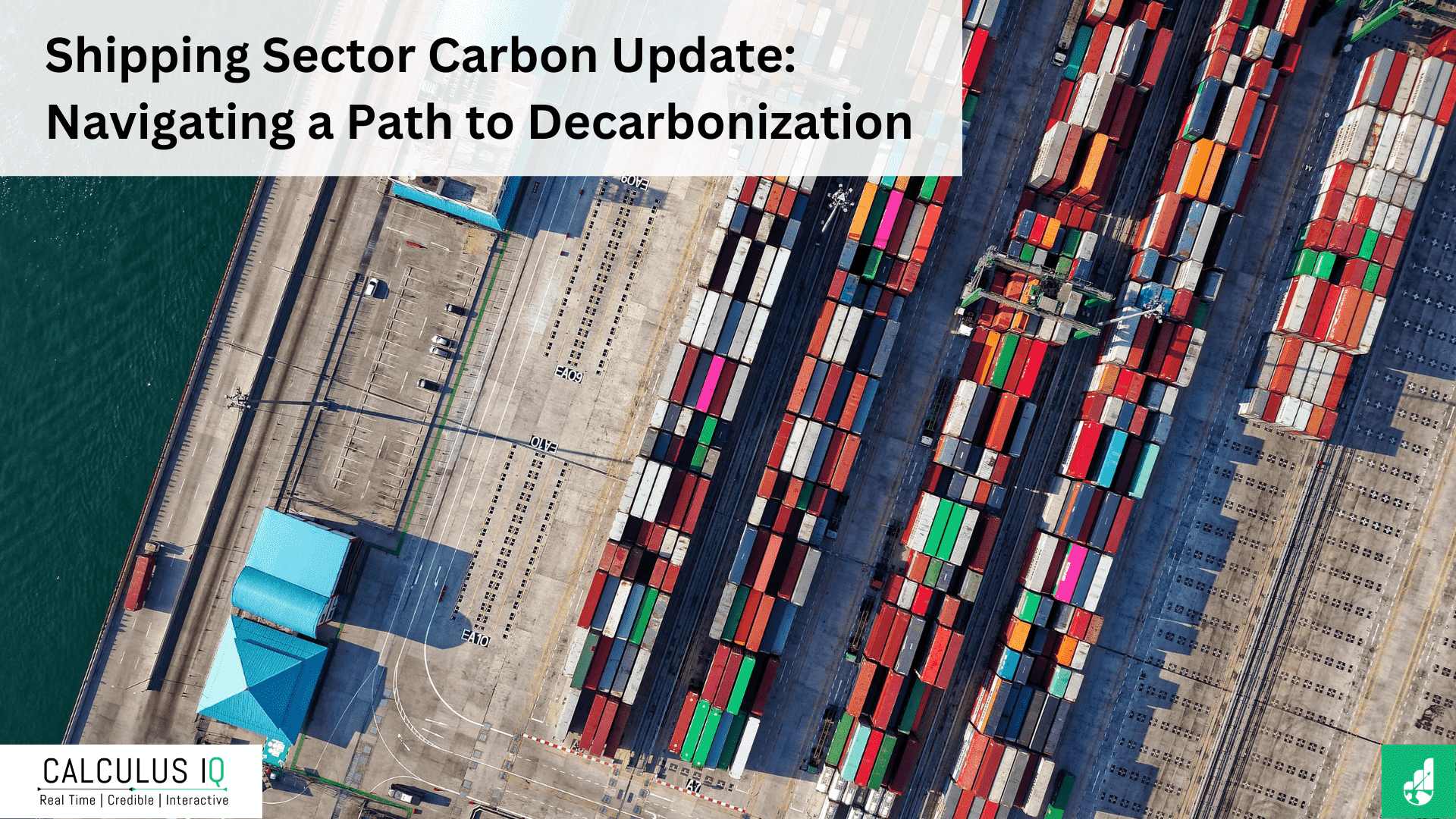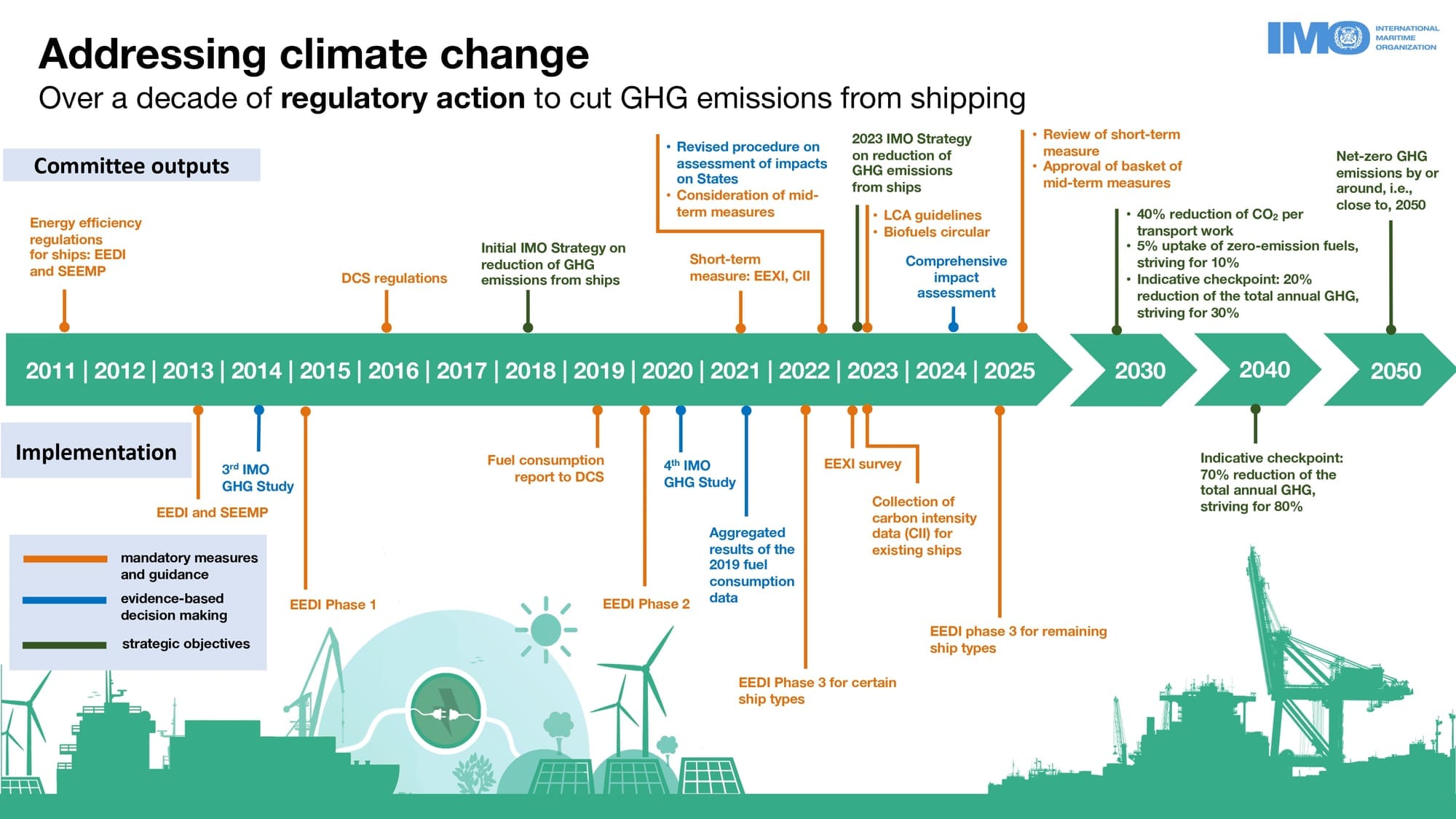Shipping Sector Carbon Update: Navigating a Path to Decarbonization

Introduction
The global shipping sector stands at a critical juncture in its quest to decarbonize and mitigate its environmental impact. With mounting pressure from governments, environmental organizations, and climate-conscious consumers, the industry faces increasing scrutiny to transition towards cleaner and more sustainable practices. In this article, we explore recent developments in the shipping sector's efforts to reduce carbon emissions, focusing on regulatory proposals, fuel dilemmas, and the path ahead for decarbonization.

Infographic: The action taken till now and the future targets (Source: IMO)
Pressure Builds for Charge on Global Shipping Sector's CO2 Emissions
Overview of Regulatory Proposals
Recent discussions at the International Maritime Organization (IMO) have brought to light a growing consensus among member states for imposing a charge on the international shipping sector's greenhouse gas emissions. Documents reviewed by Reuters reveal proposals from 47 countries supporting various forms of carbon pricing mechanisms, including a fee on each tonne of greenhouse gas produced by the industry. While support for these proposals has gained momentum, disagreements persist, particularly among trade-reliant emerging economies, regarding the potential economic implications of such measures.
Challenges and Opportunities
Proponents argue that a carbon levy could generate substantial funding, estimated at over $80 billion annually, to finance the development of low-carbon shipping fuels and support climate initiatives in poorer countries. However, opponents, including China and Brazil, express concerns that such measures could penalize developing nations heavily reliant on maritime trade. Despite the divide, there is growing recognition that decisive action is needed to curb emissions from the shipping sector, which currently accounts for nearly 3% of the world's carbon dioxide emissions.
Shipping Industry Faces Fuel Dilemma in Bid to Cut Emissions
Regulatory Uncertainty and Fuel Options
The push for decarbonization has prompted global shipping firms to explore cleaner fuel alternatives, but regulatory uncertainty complicates the transition. While options like hydrogen, methanol, ammonia, biodiesel, and liquefied natural gas (LNG) hold promise, the lack of clarity regarding future regulatory frameworks leaves industry players hesitant to commit to one fuel over another. Additionally, the lifespan of vessel engines and the substantial investments required for retrofitting or purchasing new vessels further contribute to the industry's reluctance to adopt cleaner fuels.
Rising Costs and Market Dynamics
Uncertainty surrounding fuel and technology not only impedes progress towards decarbonization but also drives up costs for shipping companies. Diversifying investments across multiple fuel options increases financial risks, while competing demands for cleaner fuels from other sectors further complicate the equation. The availability and prioritization of fuels across different industries raise questions about the future pecking order of shipping in accessing cleaner energy sources.
Conclusion: Charting the Path Ahead for Decarbonization
The shipping sector faces formidable challenges on its journey towards decarbonization, from regulatory complexities to fuel dilemmas and market dynamics. However, amidst these challenges lie opportunities for innovation, collaboration, and collective action. Moving forward, policymakers, industry stakeholders, and international organizations must work together to establish clear regulatory frameworks, incentivize investments in sustainable technologies, and facilitate the transition towards a low-carbon future.
By embracing ambitious emission reduction targets, fostering research and development in green technologies, and promoting international cooperation, the shipping sector can chart a course towards sustainable growth and environmental stewardship. While the road ahead may be challenging, the imperative to decarbonize remains clear, underscoring the industry's pivotal role in addressing the global climate crisis and building a more resilient and sustainable future for generations to come.



